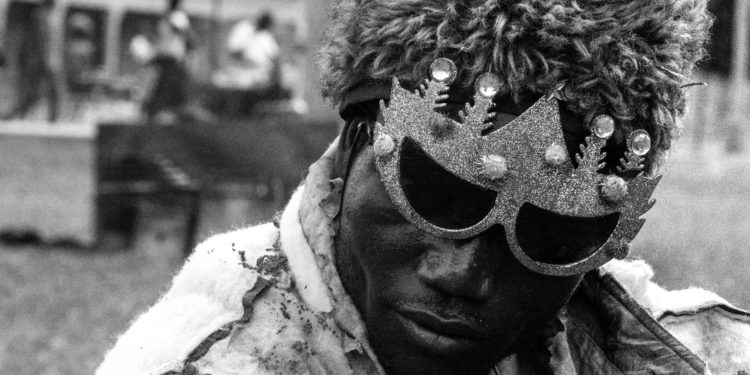By Kwamchetsi Makokha and Susan Kendi
Expert testimony at the International Criminal Court has laid bare the genesis of Uganda’s violent history that gave rise to the Lord’s Resistance Army, whose commander is facing 70 charges of war crimes and crimes against humanity.
Dominic Ongwen, the only LRA commander facing trial at the ICC, listened pensively to the Acholi translation through his black headphones on Monday as Prof Tim Allen explained the roots of one of the longest running rebel wars in modern history.
Allen, a professor of anthropology at the London School of Economics, was the first prosecution witness, and he outlined how the ascendancy of Milton Obote to Uganda’s leadership at independence sowed the seeds of subsequent violence. Obote, who came from the Langi community in northern Uganda, presided over decades of brutality and bloodshed associated with soldiers from his home region, and was deposed by his army general, Tito Okello, who was in turn overthrown by the National Resistance Army, a guerilla movement led by current president Yoweri Museveni in 1986.
The LRA came to prominence in 1987 after Museveni’s NRA surrounded and killed nearly 8,000 followers of Alice Auma Lakwena, the leader of the Holy Spirit Movement, who were marching south to the capital, Kampala, to anoint the President and declare “an era of the prophets”. Although Lakwena fled to exile in Kenya, where she died at the Kakuma Refugee Camp in 2007, her distant relative, Joseph Kony, who had been leading a parallel spiritual and military movement, immediately rose to prominence in 1989.
Kony, against whom the ICC issued warrants of arrest alongside Ongwen and three others in 2005, is still at large. Two other suspects – Raska Rukwiya and Okot Odhiambo — have been confirmed dead while Vincent Otti is believed to also have been killed.
Allen told ICC Judges Bertram Schmitt (presiding), Peter Kovacs and Raul Pangalangan that when Obote’s Uganda National Liberation Army soldiers were routed from the theatre of conflict in the Luwero Triangle, they had three choices: to join the NRA, surrender or rebel. “Many chose the latter – and retreated to their home area where they joined a local force, Chili. Some went to South Sudan, while others joined cults,” he added, lisping ever so slightly.
Soldiers returning had witnessed or participated in violent events in the Luwero area, he added, and were believed to have an aura, Cen, akin to a spirit. They were rejected by relatives because of the fear of the Cen, and out of concern that embracing them would cause Museveni’s forces to target them.
“Some turned to spirit mediums, Ajwaki, to cleanse them of the Cen and give them an identity they could aspire to,” Allen explained. He was testifying on the basis of the report he prepared for the court on how returning soldiers gravitated towards Lakwena, a spirit medium, who anointed followers with oil that would reportedly make them walk unharmed into firing government soldiers or walk naked, their bodies glistening as they threw rocks that turned into grenades.
After Alice’s defeat, her father Severino Lukoya, took over leadership of the Holy Spirit Mobile Force but was captured in 1988. Kony took over and remodeled the force into an army, influenced heavily by commanders who had fought against Museveni, and called it the Lord’s Resistance Army. Although the LRA maintained the link between spiritism and militarism, it adopted terror tactics, abducting children for conscription as soldiers and “wives”. Kony established a fearful reputation for his unpredictability: sometimes he was friendly, and at other times he spoke in strange voices and was violent. He was believed, just like Lakwena, to be possessed by a number spirits and could reportedly foresee events before they occurred.
The LRA is associated with the abduction and recruitment of approximately 66,000 children from northern Uganda, whose ages it was difficult to determine since most claimed that their birthdays were on January 1.
The LRA is alleged to be responsible for over 100,000 deaths and over 2 million internally displaced persons in Uganda, South Sudan, Central African Republic and the Democratic Republic of Congo over the course of the 30-year conflict. An attempt to broker a peace deal between the Uganda government and the LRA in Juba, South Sudan, complete with amnesty, fell through in 2008.
Ongwen has been charged with crimes that include murder, rape, sexual slavery, forced marriage, forcible displacement of persons, abduction and torture. The case focuses on four attacks in Pajule, Odek, Lukodi and Abok between October 2003 and June 2004, which affected 35,000 people.
Over 4,000 victims are participating in the trial which is being followed through webstreaming in Uganda. The trial is being screened for public viewing at Gulu Secondary School in northern Uganda.
The hearing continues.







